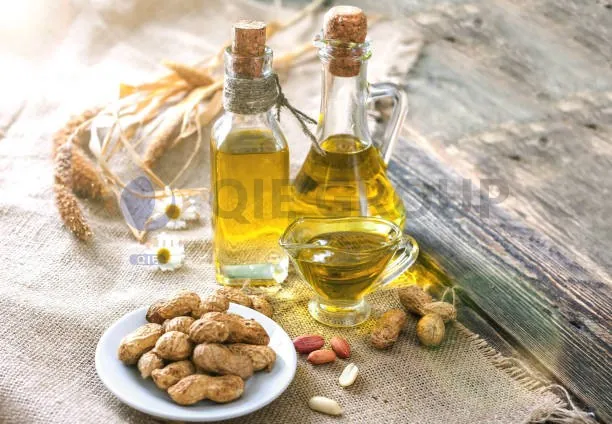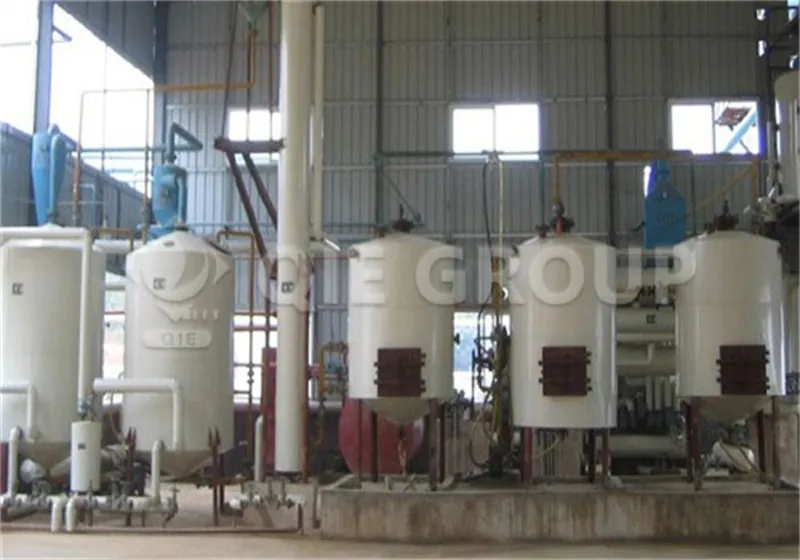
The physical refining process of small peanut oil refiner mainly includes two key links: crude oil pretreatment and distillation deacidification.

Filtration → alkali neutralization → sedimentation → washing → pre-decolorization → decolorization → deacidification → deodorization
The pretreatment stage includes three important processes: impurity removal, degumming and decolorization.
Impurities removal: mainly to remove mechanical impurities in crude oil, such as cake residue, sand, gravel, grass clippings, etc. If these impurities are not removed cleanly, they will affect the subsequent refining process and affect the quality of the finished oil.
Degumming: Focus on removing viscous substances such as phospholipids in crude oil. The presence of these substances will reduce the quality of the oil and affect the stability and transparency of the oil.
Decolorization: The pigment in crude oil is removed through a specific process to make the oil brighter and meet the standards for edible oil.

The purpose of pretreatment is to convert crude oil into pretreated oil that meets the requirements of distillation deacidification process conditions, which is a prerequisite for small peanut oil refineries to carry out physical refining. If the pretreatment work is not done well, the distillation deacidification process cannot proceed normally, and even if it is carried out reluctantly, qualified finished oil cannot be obtained.
The distillation deacidification process mainly includes heating, cooling, distillation, fatty acid recovery and other processes. This process volatilizes the free fatty acids in the oil by heating, and then condenses and recovers the volatile fatty acids by cooling, thereby achieving the purpose of deacidification and improving the quality of peanut oil.
Small peanut oil refineries need to use a variety of equipment for physical refining. The main equipment includes impurity removers, filters, degumming tanks, decolorizing tanks, oil heat exchange tanks, oil heating tanks, distillation deacidification tanks, fatty acid condensers, vacuum devices, etc. These equipment work together to complete the refining process of crude oil.
The crude oil squeezed out by the peanut oil press contains free fatty acids, phospholipids, pigments, mucus and other substances. The presence of these substances seriously affects the quality of peanut oil and cannot meet the standards of edible oil. Therefore, the crude oil must be refined. When a small peanut oil refiner is used for refining, the main equipment includes refining tanks, water washing tanks, vacuum dehydration tanks and filters. These equipment can effectively remove impurities and harmful substances in the crude oil, so that the peanut oil meets the edible standards.





